

Agroforestry is a land management system in which trees and shrubs are intentionally grown alongside crops and/or livestock. Interested in seeing these practices on a farm near you?
In 2025 ASD is hosting five farm tours throughout the region, showcasing great examples of silvopasture, alley cropping, forest farming, and other ways that producers have successfully integrated woody plant materials into their lives and farming operations.
Register below for a tour near you!
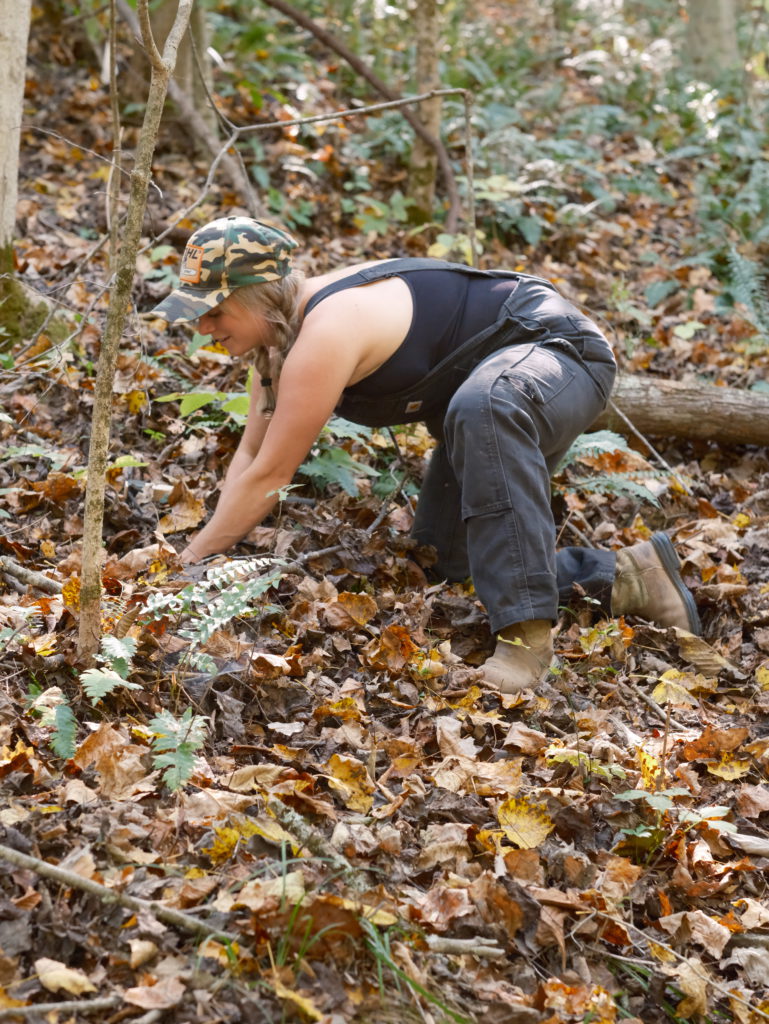
Forest Farming in Central Appalachia. BC Farm is a beginning forest farming operation. Once a tobacco farm, owner Storey Slone is now slowly shifting towards sustainable production with a focus on integrating perennial agriculture systems. Storey currently grows in her gardens and high tunnel and has started converting the old tobacco field into a pollinator plot.
Storey hopes to cultivate woodland botanicals and non-timber forest products to meet nursery stock and landscaping demands, while also incorporating them into teas, tinctures, and other value-added herbal products.
The tour will highlight the recent catalyzing agroforestry grant progress, and show sites currently being managed for forest-farmed medicinals, including goldenseal, ramps, and ginseng, in a 20-acre hardwood forest. The tour will also cover site and species selection, nursery stock challenges, and considerations for beginning forest farmers.
Registration is closed – check back Spring 2026 for more tours near you!
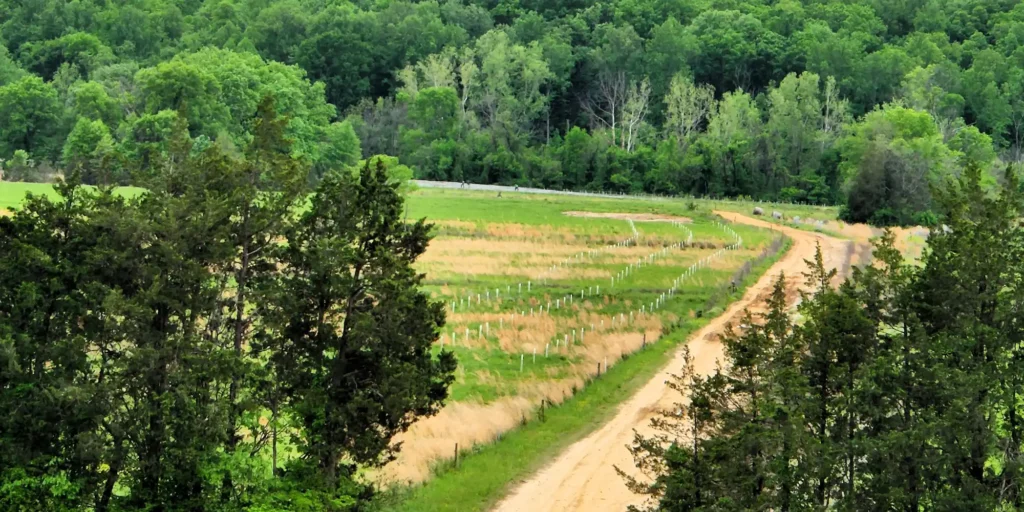
See a budding silvopasture that’s designed to take advantage of the edges of the farm to produce multipurpose trees for shade, ecosystem benefits, and fencepost material. This farm’s pragmatic design uses simplicity to gain big benefits with low complexity. We’ll enjoy a farm tour of the silvopasture, riparian buffer plantings, and diverse animal systems, followed by networking and an Agroforestry Q&A after a brown bag lunch. Learn more about Bellair Farm here.
Registration is closed – check back Spring 2026 for more tours near you!
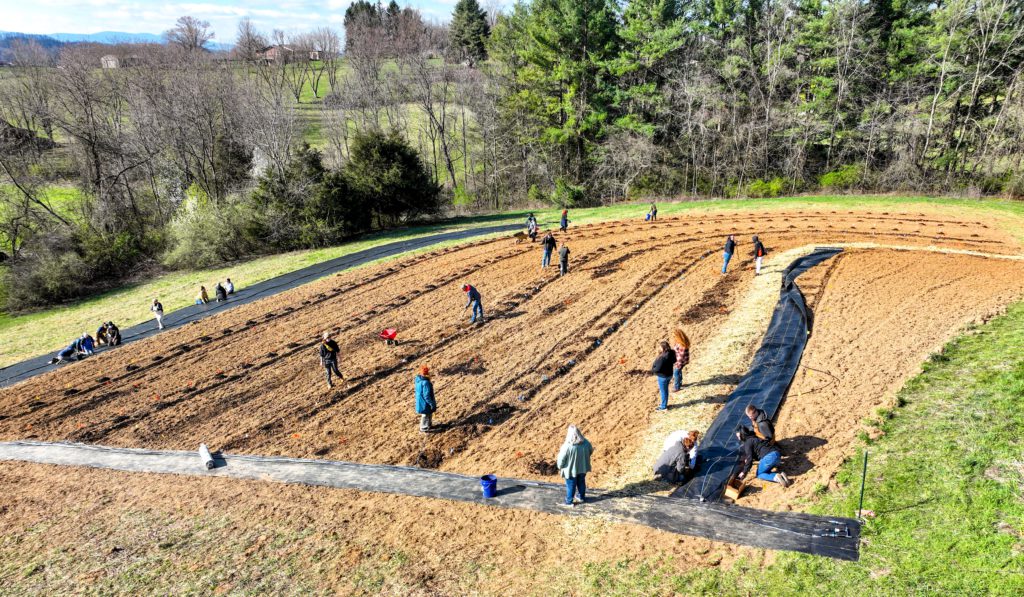
The farm tour of ASD’s alley-cropping site is a great opportunity to witness a young system that’s already producing in a big way. This system, implemented in early 2024, is already producing woody cut florals, dahlia tubers, cut flower stems, and coppiced willow stems for weaving and conservation plantings. We’ll spend the morning on a walkabout of the site with live Q&A and time to network.
After lunch, we’ll head over to a new silvopasture site in Bristol, VA, to see a transitional alley-cropping-to-silvopasture installation. This site was designed for diversified, multi-story production, and integrates hazelnuts, hardwoods, and Virginia Pines with hair sheep, to support both ecosystem and animal health.
Registration is closed – check back Spring 2026 for more tours near you!
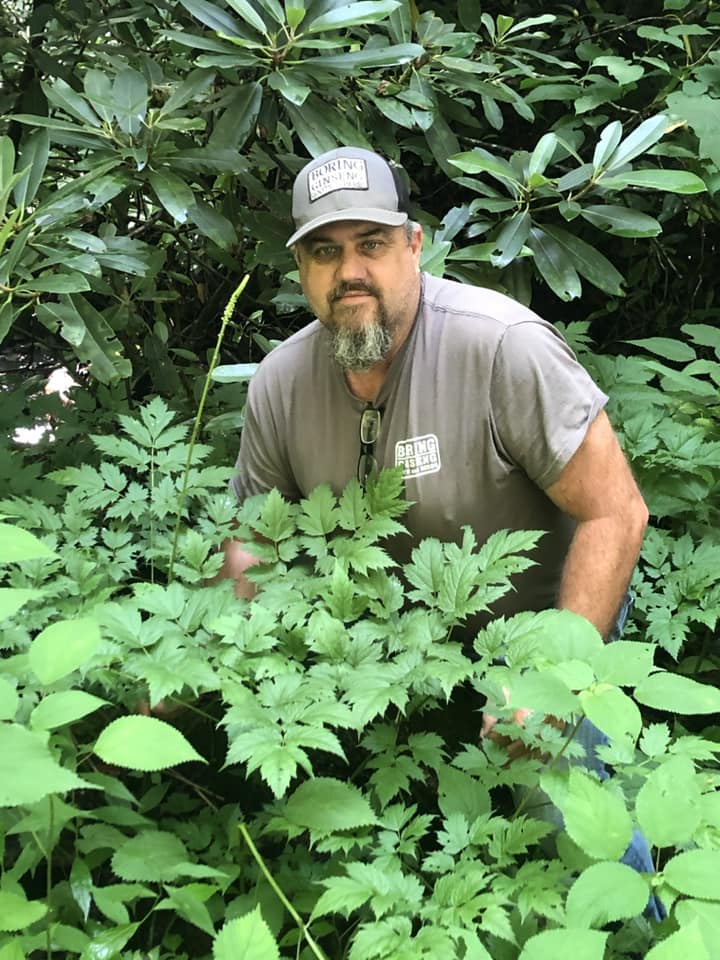
Michael Boring is a second generation root and herb dealer in the Sequatchie Valley of Tennessee. This tour will include a great overview of an established forest farming site, as well as a brief demonstration of typical post harvest handling and cleaning of forest botanicals. Tour participants will see American Ginseng, Black Cohosh, Goldenseal, Mayapple and other forest botanicals growing under a natural overstory.
The tour will highlight the recent catalyzing agroforestry grant progress, and show sites currently being managed for forest-farmed medicinals, including goldenseal, ramps, and ginseng, in a 20-acre hardwood forest. The tour will also cover site and species selection, nursery stock challenges, and considerations for beginning forest farmers.
Registration is closed – check back Spring 2026 for more tours near you!
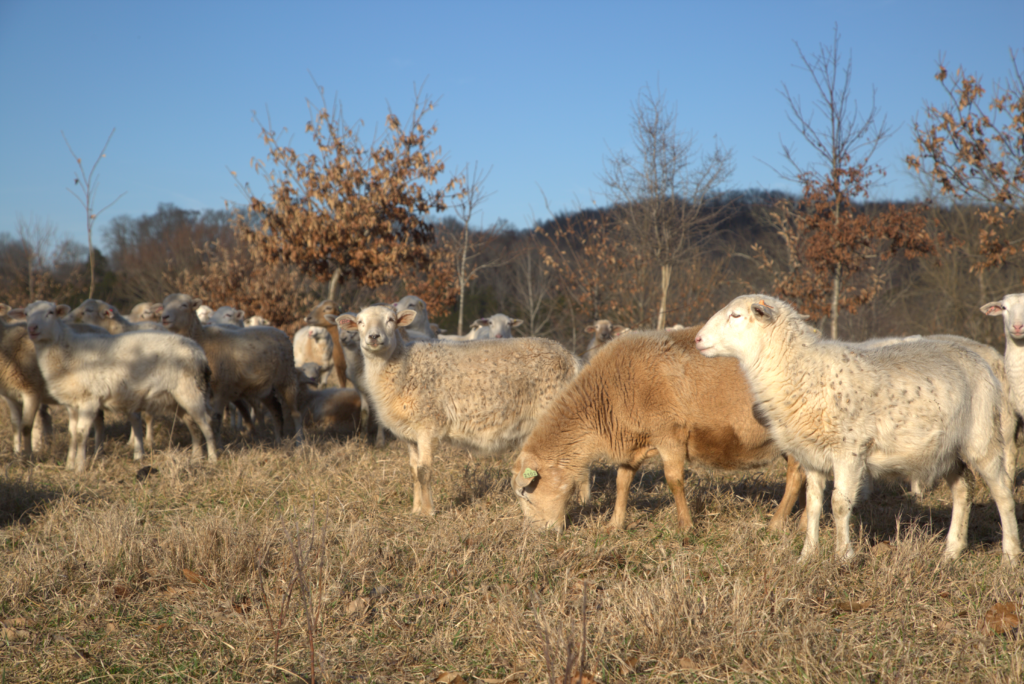
Trees, Forage, and Livestock in Practice: An Agroforestry Tour at Caney Fork Farm. Join us for a tour of a working silvopasture system where sheep rotationally graze a mix of grass species. This system supports soil health, forage growth, and livestock while contributing to carbon sequestration.
Participants will see tree plantings designed for biodiversity, habitat, and forage benefits. The site includes hard and soft mast-producing trees that support wildlife and grazing animals. The majority of the trees are chestnuts, but many more species are included as well. Trees integrated into the pasture provide shade for sheep, improved soil carbon storage, and enhanced forage production.
We will discuss the management of multi-species tree plantings and forage systems, focusing on their effects on soil fertility, pasture resilience, and productivity. This tour is for farmers, land managers, and researchers.
Registration is required.
Wyn Miller, Agroforester
wmiller@asdevelop.org
276.623.1121